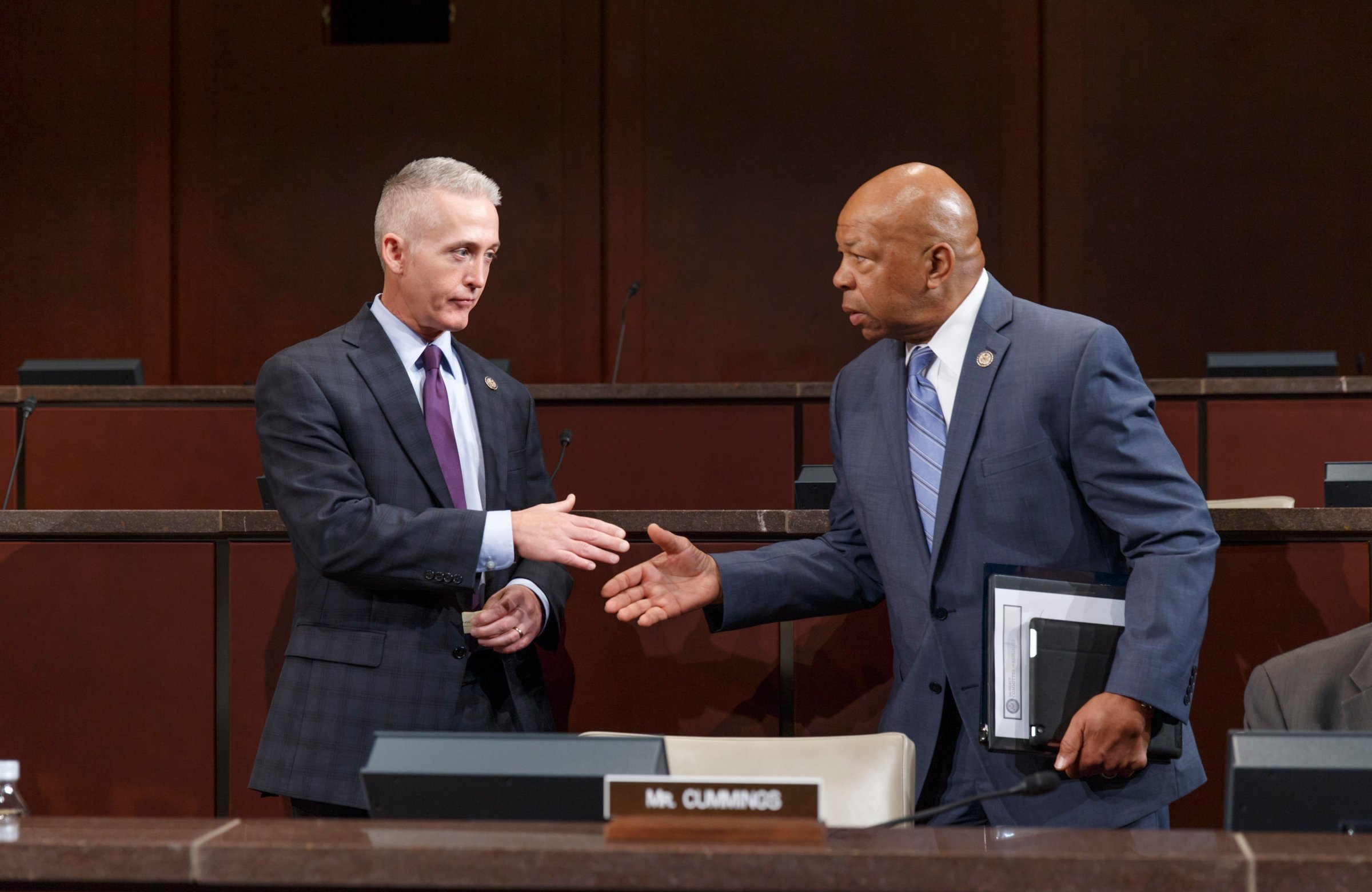
The first hearing of a special congressional committee investigating the 2012 attack on an American consulate in Libya could have dissolved into partisan bickering, finger pointing and cut microphones on Wednesday. But it did not.
Instead the committee, led by Reps. Trey Gowdy (R-S.C.) and Elijah Cummings (D-Md.), focused on how the State Department can better protect U.S. diplomats as it implements recommendations from an independent review board. The 2012 attack in Benghazi killed four Americans, including Ambassador Christopher Stevens, and has long been political fodder for conservative criticism of the Obama Administration’s foreign policy record.
In the hearing, the State Department touted that it has taken each of the 29 recommendations from the review board, and 38 of 40 recommendations provided by another panel.
“There is no doubt in my mind that we are going to implement every one of these recommendations,” said Greg Starr, the State Department’s Assistant Secretary for Diplomatic Security. Starr said the State Department has instituted new measures to better evaluate the security threats at the top 30 high-risk posts by creating a more efficient internal chain of command.
Some lawmakers focused their remarks on one of the recommendations that won’t be implemented—the creation of an undersecretary for diplomatic security—even though a similar recommendation had been approved but not carried out by the agency after an embassy attack in East Africa in 1998.
“It’s recommendation No. 1,” said Rep. Jim Jordan (R-Ohio). “What’s it going to take to put in place the practices that save American lives?”
But the committee did not devolve into a political circus. Outside opposition efforts, including a liberal website designed to counter attacks lobbied against former Secretary of State Hillary Clinton, were largely silent. Cummings expressed hope that the committee could continue to work in such a manner.
“Too often over the past two years, the congressional investigation into what happened in Benghazi has devolved into unseemly partisanship,” Cummings said. “Today, we have an opportunity to focus on reform. How can we learn from the past to make things better in the future? This kind of oversight can be productive, it can be critical, and it can sometimes even be tedious, but it can also save people’s lives. I sincerely hope the Select Committee will stay on the course of constructive reform and keep this goal as our North Star.”
More Must-Reads From TIME
- The 100 Most Influential People of 2024
- The Revolution of Yulia Navalnaya
- 6 Compliments That Land Every Time
- What's the Deal With the Bitcoin Halving?
- If You're Dating Right Now , You're Brave: Column
- The AI That Could Heal a Divided Internet
- Fallout Is a Brilliant Model for the Future of Video Game Adaptations
- Want Weekly Recs on What to Watch, Read, and More? Sign Up for Worth Your Time
Contact us at letters@time.com